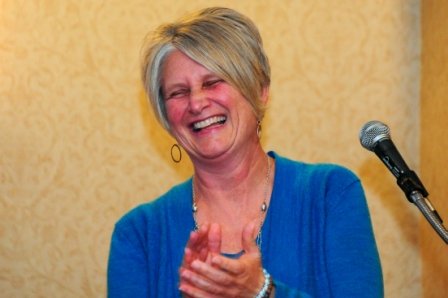By Robert Dobson – Athlete Assessments
 Ask the most successful head coaches what they really value in their programs; they will almost unanimously identify the strength and dependability of their assistant coaches as fundamental to what they can achieve. While assistants have the ‘privilege’ of avoiding the ultimate responsibility i.e. the see-saw between glory when the team wins, and the blame and cut-throat consequences of under-performance, in many ways they are the unsung heroes of the team’s success.
Ask the most successful head coaches what they really value in their programs; they will almost unanimously identify the strength and dependability of their assistant coaches as fundamental to what they can achieve. While assistants have the ‘privilege’ of avoiding the ultimate responsibility i.e. the see-saw between glory when the team wins, and the blame and cut-throat consequences of under-performance, in many ways they are the unsung heroes of the team’s success.
The role an assistant coach plays varies enormously from team to team, depending on their head coach, their sport, their budget, how many members are a part of the coaching team as well as their experience and skill set, just to name a few. Consistent for the vast majority of assistant coaches are the long hours, exhaustive tasks and limited time and resources for professional development.
For some assistant coaches, depending on their program and budget, they may have additional administrative responsibilities, or need to have a second job to supplement their coaching salary. Too often professional development for assistant coaches is on-the-job, exclusively within their own program, stolen moments to watch some YouTube clips, or what they can glean at their once a year coaches convention. Without taking away from the genuine quality these opportunities provide, over the year what this adds up to can be small.
As with any pursuit, what makes someone stronger and more capable is the opportunity to develop. This has been proven with research, time and time again1. Add to this, the ambition of becoming a head coach, their development and career support can be the most neglected areas of their profession.

The plight of professional development for assistant coaches has not gone unnoticed by Celia Slater, CEO of True North Sports. Celia has taken up the challenge to ‘be the change you want to see in the world’ with a new, year-long Assistant Coach Immersion Program (ACIP), dedicated to assistant coaches.
“Assistant coaches are rarely in a true ‘head coaching apprenticeship role.’ They are more often found doing their job of recruiting or scouting and not being exposed to all the skills necessary to be a head coach and create their own program. This isn’t anyone’s fault; it is just the way things have been done for so long. This program is about consciously preparing assistants who want to move into that role.”
Whether an assistant coach sees themselves as career assistant coaches or wants to take over a head coaching position, they no longer need to fear that they lack the skills necessary to be an effective leader. This one of its’ kind Assistant Coach Immersion Program (ACIP) will be launched in Denver with a five day intensive residential event at the end of May.
 The ACIP is an educational training program that aims to developing collegiate Assistant Coaches in women’s sport better adjust to the challenges of taking on a head coaching role. Celia, the Program’s coordinator is a veteran collegiate coach and administrator. Aside from Slater’s wealth of knowledge and personal experience within NCAA coaching and administration, she was also the co-founder of the NCAA’s Women Coaches Academy (WCA) as well as co-founder of the Alliance of Women Coaches – the only association made up of all female collegiate coaches.
The ACIP is an educational training program that aims to developing collegiate Assistant Coaches in women’s sport better adjust to the challenges of taking on a head coaching role. Celia, the Program’s coordinator is a veteran collegiate coach and administrator. Aside from Slater’s wealth of knowledge and personal experience within NCAA coaching and administration, she was also the co-founder of the NCAA’s Women Coaches Academy (WCA) as well as co-founder of the Alliance of Women Coaches – the only association made up of all female collegiate coaches.
Boasting almost three decades of coaching and administrative experience in women’s sport, 2014 signaled a shift in Celia’s focus towards working with both male and female Assistant Coaches to address professional development as well as the social issues surrounding women’s collegiate sport.
“The main purpose of the Assistant Coach Immersion Program is to develop and support the next generation head coaches. If we want assistants to step into the role of head coach we need to prepare them to lead their own program. We cannot assume that the assistant role prepares them for the leap and all the demands of being the leader in charge.”
The ACIP is built on a detailed four-track curriculum focusing on the areas of development of coaching philosophy, communication and leadership skills, management and career advancement advice. Beyond technical improvement, the Program offers a substantial opportunity for group networking and personal support among like-minded Assistant Coaches and industry-professionals within the field of women’s collegiate sport.
“We not only want to give these assistants the main skills needed to develop a personal coaching philosophy, we also want to introduce them to a network of support made up of coaches in a similar phase of their careers.”

Athlete Assessments Client Director, Liz Masen, will be on faculty for the Program alongside other big names inside the world of women’s collegiate sport – Holly Hesse, Anson Dorrance, Becky Burleigh to name a few. Liz, who considers the development of women and leadership two major passions in her professional life, is thrilled to be able to contribute to the success of such a leading-edge program.
“Given my fond working history with Celia, I’m incredibly excited to be facilitating at the Assistant Coach Immersion Program. The quality of the content is exceptional and one of the best aspects of the program is its location. This program is being run parallel to NACWAA’s (National Association of Collegiate Women Athletics Administrators) Institute of Administrative Advancement and the NCAA’s Women Coaches Academy. The opportunity for the assistant coaches to build relationships and network with the participants in the other programs will be incredibly valuable for their future roles.”
Over the five days, Denver is to be home to numerous leading professionals in the industry of women’s sports management and administration across three programs. NACWAA’s Institute is dedicated to the elite personal development in intercollegiate administration. The Women Coaches Academy will be engaging in their weeklong educational training sessions providing coach development for women of all coaching experience levels. The opportunity for all those in attendance to meet and socialize with a diverse range of male and female coaches, managers and administrators within intercollegiate women’s sport is certainly not a regular occurrence and will be an event not worth missing.
If you would like more information on the sessions Liz is presenting, please contact us. True North Sports in now accepting applications to the Assistant Coach Immersion Program for the 27th to the 31st of May in Denver, click here to apply now!
1Dearstyne, B.W, 2010, ‘Coaching for Professional Development’, Information Management, vol. 44: 36-40.
Liz will be presenting two sessions at the Assistant Coach Immersion Program focusing on values, developing coach self-awareness and individual coaching styles. The Assistant Coaches will complete a CoachDISC Profile which will aid them in understand their preferred coaching style, when it is most appropriate to use this style and when it is important to make an adaptation to create better outcomes. They will discover strategies to better relate to the behavioral needs of athletes and fellow coaches and how to build more productive relationships with them. Coaches will learn how to manage potential conflict to ensure it does not derail athletes at crucial times during the season. Coaches will also identify the communication style of athletes so they can tailor their coaching to suit the athlete’s preferred way of being interacted with.





